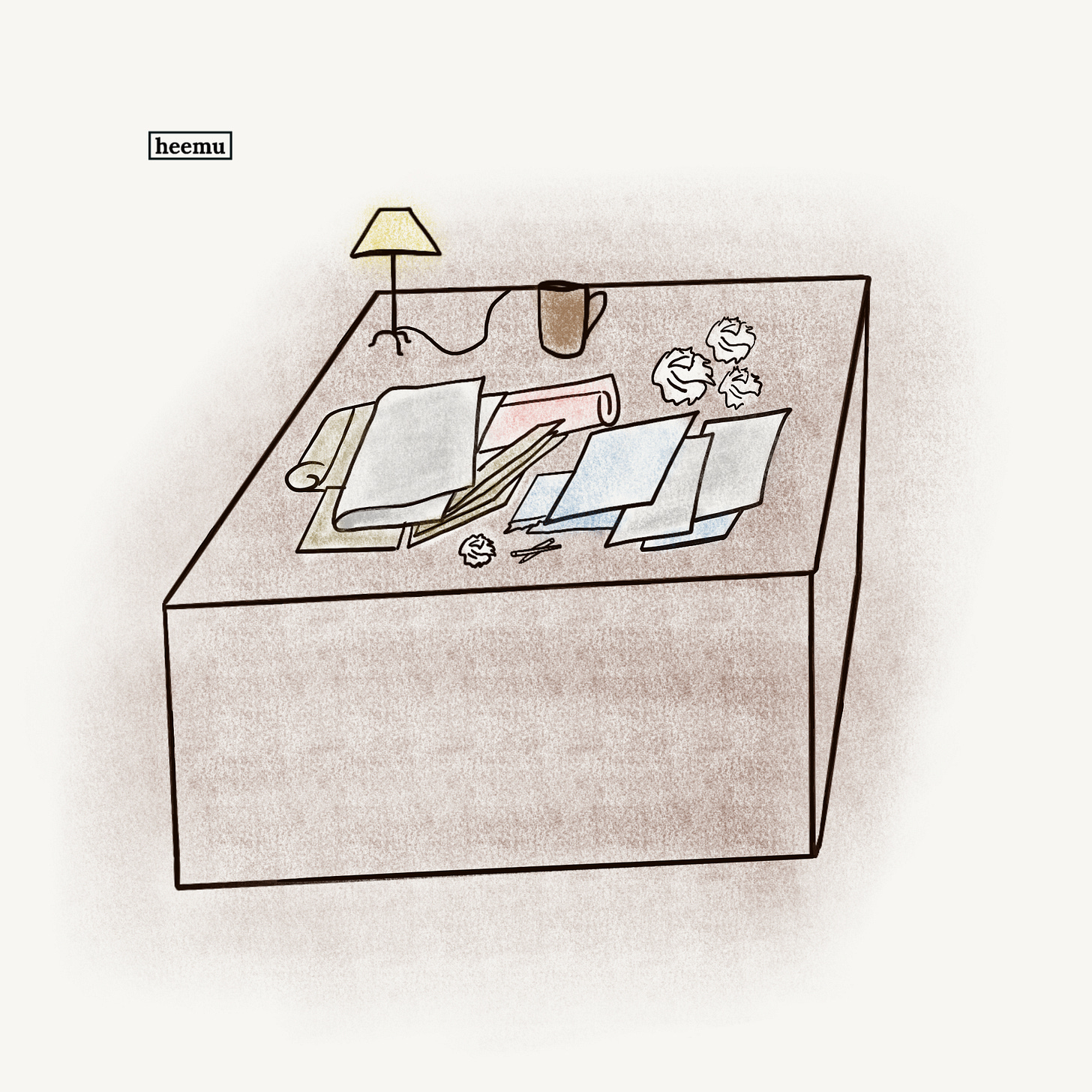Let’s imagine you walk into someone’s home and you see a messy desk. The first instinct of most people would be to start cleaning it, because the learned instinct for any kind of mess we see is to fix it, to clean it, to alter it.
There is also a second option: letting it be. Maybe it doesn’t need fixing. Maybe it doesn’t need cleaning. Maybe the mess can exist as it is. And maybe that doesn’t have to be forever. Maybe it can remain messy for a week or two before something is done with it.
The Way We Think of Messy
An adjunct to this is the way we think of messy. Traditional ideas are usually associated with the words “dirty,” “lazy,” “apathetic,” “slacking” and many others that I’m sure I’m unaware of or aren’t coming to mind right now. Perhaps instead, messy means unorganized. Perhaps it means redecoration or renovation. Perhaps it serves as a temporary placeholder. Perhaps it means reluctant. Perhaps it means rest.
If we open ourselves to the possibility of there being deeper or “other” meaning to even seemingly mundane observations in our day-to-day lives (i.e., a messy desk), then I believe we can create less judgement and more compassion. We can see people and ourselves less from learned, modelled, or socialized rulings, understandings, or viewpoints, and more from compassionate understanding and connection.
Start “Small”
We scroll through hundreds of posts on Instagram and other social media outlets touching on the importance of building genuine connection, companionship, and compassion. Often we’re mistaken in thinking this begins from grand actions or verbal collages, when really, it begins from our inner world and its interpretations.
What if instead, we looked at our messy desks and the messy desks of others and thought, “I’m taking the rest I deserve,” “I notice they’re usually not like this and I’ll let them know I’m here for them,” or “I’m experiencing something really challenging and I need time to figure out some things.” Instead of labelling ourselves as “failures,” “losers,” “late-to-the-game-ers,” or “lazy,” “inadequate,” and “undeserving,” we can begin unpacking those labels, peeling them off, and allowing ourselves to sit in the pool of our entire human experience. That is, the “messy,” and the good. This is what I’d like to refer to as the “Messy Desk Phenomenon.”
For Others
When it comes to others, sometimes we can assess what’s going on, and that may very well be what someone is dealing with. Other times, our assessments and conclusions can be wrong. God knows best. I believe we can use 3 key components to help us: (1) Using the power of observation to assess a situation, (2) the power of communication to verbalize the assessment and our personal thoughts and feelings, and (3) inquiring through compassion and genuine curiosity to position the conversation in an equitable manner. Combined, these components go a long way.
Start With Yourself, Then Others
Of course, to exercise the messy desk phenomenon with others means we must also exercise it with ourselves. The key is to recognize and identify where self-judgemental talk and narratives begin or continue to replay, and then using the powerful word “perhaps” to recognize this messy desk for more than or other than what you’ve conjured it up to be. It precisely begins from something as “simple” and “mundane” as a messy desk. If we can’t begin to practice with alternative ways of thinking, connecting, and relating with others, the world, and ourselves in these “smaller” moments of life, it would be difficult to do so in more challenging circumstances. We may even notice our attempt melting into a puddle of disappointment because we walked into a more challenging situation expecting our efforts to be successful, even though we hadn’t put in the work during our day-to-day situations.
After reading this, are you able to recognize messy desks in your life with which you can begin practicing the messy desk phenomenon? I believe it’s exciting to know there are so many layers and much depth to what we see and experience in this world, so long as we exercise openness.




